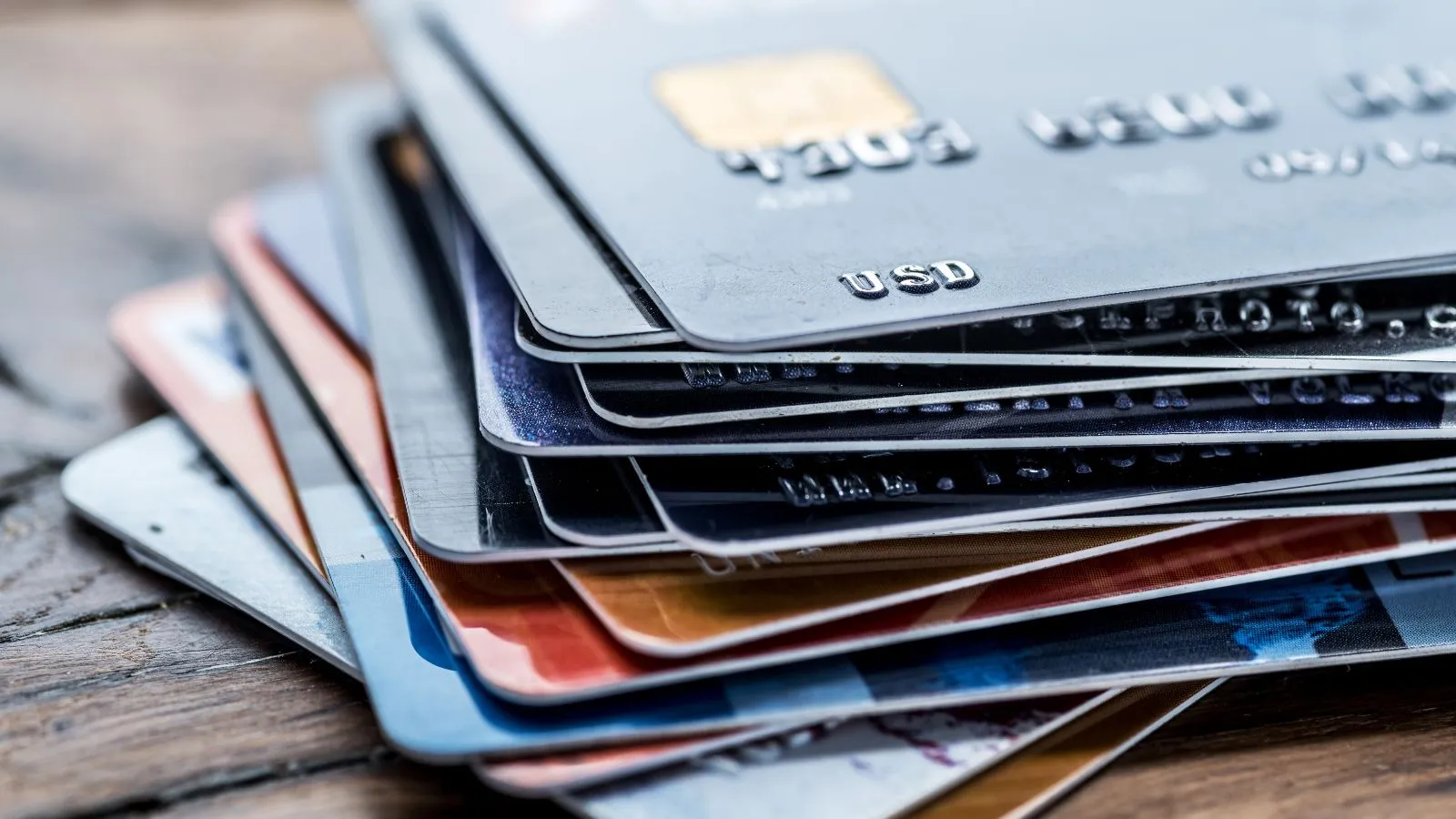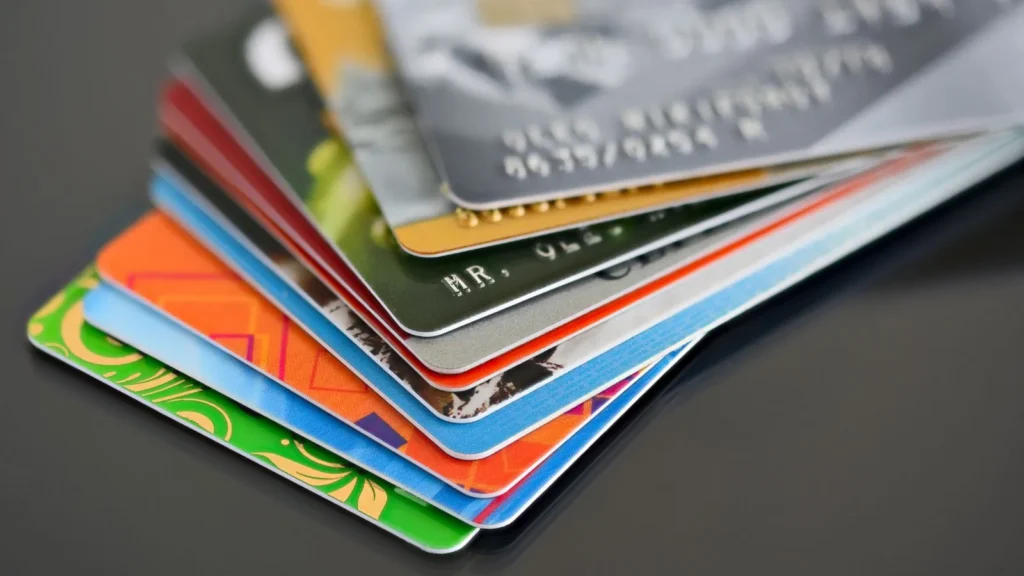Ever stood at the checkout counter, wallet in hand, and wondering which card to use?
You’re not the only one.
Credit and debit cards may look alike, but they’re quite different things. Imagine this: you’re about to buy those shoes you’ve been eyeing for weeks. Do you reach for the credit card and worry about the bill later, or play it safe with your debit card?
It’s a common dilemma, and the choice can impact your finances more than you might think. Let’s dive into the world of plastic money and learn the key difference between credit card and debit card. By the end, you’ll be swiping with confidence, knowing exactly which card suits your needs best.
What is a Credit Card and How Credit Cards Work
Would you like to know what that little plastic card in your wallet is all about? Let’s dive into the world of credit cards and how they work.
A Line of Credit at Your Fingertips
Credit cards offer a line of credit for purchases, balance transfers, and cash advances. Think of it as a pre-approved loan you can tap into whenever you need it. You swipe your card, and voila! You’ve just borrowed money to buy that new gadget or pay for dinner.
The Monthly Dance
Here’s the deal: credit cards require at least a minimum monthly payment by a specific due date. It’s like a financial tango – you borrow, you pay back, you borrow again. If you miss a step (or a payment), you might face some music in the form of late fees or interest charges.
Revolving Credit: The Gift That Keeps on Giving
Credit cards provide access to a revolving line of credit that can be borrowed against and repaid. It’s like a financial merry-go-round. As you pay off what you’ve borrowed, that amount becomes available again. It’s a cycle that can be super handy, but remember, it’s not free money!
If you know the difference between credit card and debit card usage it is also a key to managing your finances wisely. While both are plastic, they function quite differently in your financial toolbox.
Pros and Cons of Credit Cards
Credit cards can be a double-edged sword. On the one hand, they offer some pretty sweet perks. On the other, they can lead you down a slippery slope if you’re not careful.
The Good Stuff
Let’s start with the positives. Credit cards often come with rewards programs that let you earn points or cash back on your purchases. It’s like getting a little bonus every time you swipe. Many cards also offer fraud protection, giving you peace of mind when shopping online or in stores.
Another big advantage? Convenience. With a credit card, you can make purchases now and pay later. This can be a lifesaver when you’re short on cash but need to buy something important.
The Not-So-Good Stuff
Now for the flip side. The biggest downside of credit cards is the potential for high-interest debt. If you don’t pay off your balance in full each month, those interest charges can add up fast. Before you know it, you might find yourself in a financial hole that’s tough to come out of.
It’s also easy to overspend with a credit card. When you’re not handing over cold, hard cash, it can feel less “real,” leading to impulse purchases you will possibly regret later.
The difference between credit card and debit card use really comes down to self-control and financial savvy. Credit cards do offer more flexibility, but debit cards keep you grounded in your actual bank balance.

Understanding Debit Cards
How do debit cards work? Let’s take a look at what makes them tick and see how they work.
Your Direct Link to Your Bank Account
When you swipe your debit card, it’s like reaching directly into your checking account. Unlike credit cards, debit cards don’t let you borrow money. Instead, they deduct funds straight from your balance. It’s a simple, no-fuss way to pay for your morning coffee or weekly groceries.
Convenience Meets Control
Debit cards offer a perfect combination of convenience and financial control. You can use them almost anywhere – from corner stores to online shops. They also help you keep a check on your spending. Every transaction shows up in your account history, making it pretty easy to track where your money’s going.
Safety Without the Debt
Worried about carrying cash? Debit cards have got you covered. They’re safer than a wad of bills and don’t saddle you with debt or interest charges. It’s like having the best of both worlds – the security of plastic with the simplicity of cash.
Remember, the difference between credit card and debit card use can majorly affect your financial health.
Pros and Cons of Debit Cards
Debit cards do provide a unique blend of convenience and control, but they’re not without their drawbacks. Let’s dive into the ups and downs of using these plastic wonders.
The Good Stuff
You know that feeling when you’re trying to stick to a budget? Debit cards are your new best friend. They tap directly into your bank account, so you’re only spending money you actually have. No more “oops, I overspent” moments!
Most debit cards come without those pesky annual fees. That’s right – more money in your pocket for the things you really want.
The Not-So-Great Stuff
Now, here’s the catch. While debit cards help prevent debt, they can also leave you high and dry if you’re not careful. For instance, you’re at the grocery store, a cart full of goodies, and your card gets declined. Talk about embarrassing!
And while there’s usually no annual fee, some banks might hit you with other charges. ATM fees, anyone?
The Sweet Spot
Debit cards shine when it comes to small, everyday purchases. Coffee runs, quick lunches, or that impulse buy at the dollar store – your debit card’s got you covered. It’s like having a digital wallet that keeps you honest.
The difference between credit card and debit card use often comes down to your spending habits and financial goals.
Difference Between Credit Card and Debit Card
Have you ever given it a thought why you have both a credit card and a debit card in your wallet? While they may look similar, these plastic rectangles function quite differently.
Borrowing vs. Spending Your Own Money
When you swipe your credit card, you’re basically borrowing money from the card issuer. You can spend up to your credit limit, even if you don’t have that cash on hand. It’s like a short-term loan you can use for purchases.
On the flip side, your debit card is directly linked to your bank account. When you use it, you’re spending money you already have.
The Money Trail
Think of your debit card as an electronic version of your chequebook. Each time you use it, funds are immediately withdrawn from your account.
Credit cards, however, allow you to make purchases now and pay later. At the end of each billing cycle, you’ll receive a statement showing what you owe.
Financial Flexibility
Credit cards offer a bit more wiggle room. If you’re short on cash, you can still make purchases and pay them off over time. Just remember, this convenience comes with interest charges if you don’t pay your balance in full.
Debit cards keep you grounded in reality – you can only spend what’s in your account.
Frequently Asked Questions About Credit Cards and Debit Cards
Wondering about the ins and outs of credit cards and debit cards? You’re not alone! Know the answers to some common questions to help clear things up.
Are credit cards and debit cards the same thing?
Nope, they’re quite different! While both let you make purchases without cash, a credit card borrows money from the issuer, while a debit card uses funds from your bank account.
Which is safer to use online?
Generally, credit cards offer better fraud protection. If someone steals your credit card info, you’re not out any money while the issue is resolved. With a debit card, funds can be immediately withdrawn from your account.
Can I build credit with a debit card?
Unfortunately, no. Debit card usage doesn’t impact your credit score. Credit cards, on the other hand, can help build your credit history when used responsibly.
Do I need both types of cards?
It’s not a must, but having both a credit card and a debit card can be handy. Use your debit card for everyday spending and your credit card for larger purchases or emergencies. Just remember to pay off that credit card balance!
So now you know the key differences between credit and debit cards. At the end of the day, both can be handy tools when used wisely. Credit cards give you some wiggle room and perks, while debit keeps you honest about your actual bank balance.
Whichever you choose, the most important thing is being smart about your spending. Maybe try tracking your habits for a month to see which option fits your lifestyle better. And remember, just because you can spend doesn’t always mean you should!
The “best” choice comes down to your personal money style and goals. So take some time to think it through, and pick the plastic that’ll serve you well.







